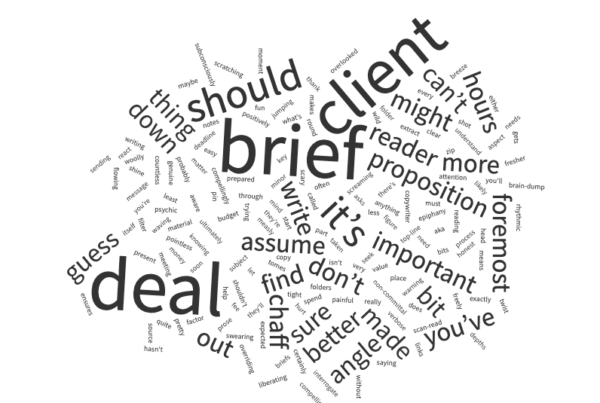Okay, not so much when it’s the ubiquitous rogue apostrophe at the greengrocer, or the ‘Quite Please’ or ‘Shareholder’s meeting’ sellotaped to the conference room door. Not everyone is a grammar geek – and it’d be a much duller internet if they were. But…
I think it’s fair to say, though, that it does matter at a certain level. Getting your punctuation and grammar skew-whiff when your copy needn’t be written hastily – like on your website, or in your brochure, or in your email to the executive board, or your pitch for a major project – is, to all intents and purposes, sloppy. It kind of suggests you’re not overly bothered. That you don’t really place much emphasis on clear, howler-free communication.
And if you’re using words to engage and persuade, rather than simply to convey basic info such as ‘shut the door’ or ‘Potatoes 75p a bag’, it can plant seeds of doubt in your readers’ minds about the integrity of what you’re saying.
Even if the reader forgives you – because let’s be honest; not everyone has the time or inclination to be beyond reproach when they write – they noticed.
Oh yes, they noticed. And they might then wonder what else you’re not overly bothered about. Not consciously, perhaps, but a rogue apostrophe or a misspelled word might be something they remember about you just as readily as what you were trying to tell them in the first place.
Of course, as a writer, it’s hard to be objective about it. It matters to me, and I assume it matters to my clients or I wouldn’t have any. However, from talking to non-writers about it (yes, I’m the life and soul of every party), it seems they have similar notions. In fact, it was a passing comment from a relative that prompted this article:
“A recent magazine advertisement for a small museum in Ontario says they are open on ‘Wednesday’s and Saturday’s’. These are merely grammatical errors, not even about tone, diction, etc., but the errors make me question whether the museum is run professionally.”
You see? An innocent rogue apostrophe makes my Auntie Nicole question the museum’s professionalism. Case closed! Seriously, though – it’s evidence enough that potential customers will make judgements on completely innocent oversights… and share them. The damage that can cause may be negligible, but the truth is you’ll never know.
The best insurance is to scrutinise what you write on your business’ behalf. Even if it’s nothing more than getting others to read it before signing it off, it’s worth it. Not every communication merits employing a copywriter, but surely most things beyond the price of carrots, or leaving a note for the courier, should at least get a second opinion.
Even experienced copywriters get others to read their work, because they’re coming to it with fresh eyes, just like everyone in your target audience will be. Your readers will likely be busy, impatient people who will scan what you’ve lovingly prepared, in search of what it means to them.
Don’t spoil it with a slip-up. It might make you stick in their minds for a while, but it’ll be for the wrong reason.




